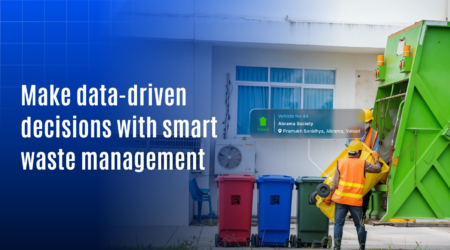How Florida businesses benefit from reliable tire pressure systems

Florida’s roads are always busy—and not just with tourists. The state is home to over 11 million registered commercial vehicles, supporting industries from retail and logistics to construction and services. But with so many miles driven each day under intense sun, heavy rainfall, and coastal humidity, tire wear and pressure issues are more than common; they’re constant. According to the National Highway Traffic Safety Administration (NHTSA), underinflated tires are three times more likely to be involved in a crash. And in hot, high-speed environments like Florida highways, tire blowouts and flats are among the leading causes of unscheduled breakdowns. For business owners, every flat tire means lost time, missed deliveries, and unexpected expenses. That’s why more Florida-based fleets and service providers are turning to tire pressure systems, tools that automate tire monitoring, send instant alerts, and help reduce downtime without manual checks.
Florida’s road realities
Operating a business fleet in Florida isn’t just about getting from point A to B. It’s about navigating a unique mix of environmental and operational challenges that directly affect tire performance.
- Heat and humidity: Florida ranks among the hottest and most humid states in the U.S. Tire pressure rises with heat and drops rapidly when temperatures fluctuate, causing stress on tire walls and increased risk of blowouts.
- Frequent rainfall: Florida averages over 50 inches of rain annually. Wet roads reduce traction, and even slightly underinflated tires can cause a vehicle to skid or hydroplane.
- Long-distance routes and urban traffic: From coast-to-coast cargo hauls to last-mile delivery vans in Miami or Orlando, Florida fleets experience both long-haul stress and stop-and-go fatigue, accelerating tread wear and uneven pressure loss.
- Storm preparedness and hurricane recovery: During emergency seasons, fleet reliability becomes critical for everything from supply runs to utility services. A tire failure during these times can disrupt vital operations.
These realities make manual tire checks unreliable and reactive at best. Businesses need a smarter, automated way to manage tire pressure before it becomes a problem—and that’s exactly what tire pressure systems are designed to do.
What are tire pressure systems?
Tire pressure systems, commonly known as TPMS (Tire Pressure Monitoring Systems)—are digital tools that help businesses keep track of tire health without the need for manual inspections. They’re designed to detect underinflation or overinflation and send instant alerts when tire pressure moves outside the safe range.
There are two main types of systems used in fleets:
- Direct TPMS: These use sensors mounted directly inside the tire to measure pressure and temperature. They offer real-time, highly accurate data and are ideal for commercial vehicles operating in demanding conditions like those in Florida.
- Indirect TPMS: These rely on wheel speed sensors and algorithms to estimate pressure loss. While less precise, they are commonly used in light-duty vehicles.
For Florida-based businesses, direct TPMS is often the preferred choice. It offers:
- Live monitoring of each tire
- Mobile alerts to drivers and fleet managers
- Data integration with fleet management software
- Immediate insights to prevent breakdowns before they happen
Instead of relying on periodic checks or waiting for a flat to occur, businesses get automated visibility into tire performance, 24/7. This shift from reactive to proactive tire care is what helps reduce downtime, cut operational costs, and improve safety on Florida’s challenging roads.
Key benefits for Florida-based businesses
Reliable tire pressure systems aren’t just about convenience—they directly impact safety, savings, and uptime. Here’s how they help Florida businesses:
- Safer travel in wet conditions
Timely alerts prevent underinflation, reducing the risk of skidding or blowouts during heavy rains. - Better fuel efficiency
Properly inflated tires lower rolling resistance, which helps businesses cut fuel costs, especially in urban traffic. - Longer tire life
Maintaining correct pressure prevents overheating and uneven wear, extending tire usage even in Florida’s heat. - Fewer delays
Early warnings help fix issues before they cause breakdowns, keeping service and delivery schedules on track. - Easy compliance
Recorded pressure data helps meet safety standards and simplifies audits or insurance checks.
In short, tire pressure systems remove the guesswork and reduce the risk, giving Florida-based fleets the edge in a demanding environment.
Industries in Florida are seeing real benefits
Tire pressure systems are proving valuable across multiple industries in Florida where vehicle uptime and safety are essential:
- Logistics and delivery fleets
With tight schedules and long routes, logistics companies use TPMS to reduce unexpected halts and maintain on-time deliveries. - Tourism and transport operators
Buses, shuttles, and rental fleets serving Florida’s tourism hubs benefit from enhanced road safety and smoother customer experiences. - Field service providers
HVAC, plumbing, and electrical service vans run daily routes in urban and suburban areas—TPMS helps them stay on the road and on time. - Construction and agriculture
Off-road and heavy-duty vehicles face extreme wear. Real-time pressure monitoring minimizes downtime on active job sites and fields.
Across all these industries, tire pressure systems help operators reduce costs, improve safety, and manage fleets more efficiently in Florida’s high-pressure operating conditions.
Conclusion
Florida’s roads and weather take a toll on business vehicles. Reliable tire pressure systems help fleets stay safe, efficient, and on time, without the guesswork.
From reducing blowouts to cutting fuel costs, these systems offer real-time support that keeps your operations running smoothly. For any Florida business with vehicles on the move, it’s a smart investment in safety and uptime.




